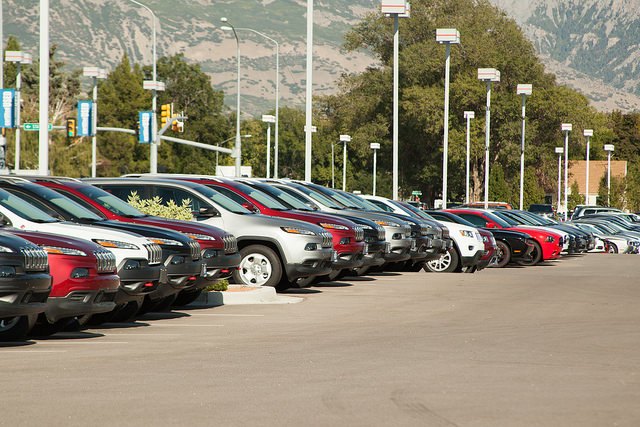Subprime Car Buyers Haven't Defaulted This Much Since '96

Grunge was on its way out the door, Pepsi aficionado Bob Dole was challenging William Jefferson Clinton for the keys to the White House, and the Ford Contour was still a relatively new sight on American roads.
That was the last time this many U.S. car owners fell way, way behind on their subprime auto loans.
According to Fitch Ratings (via Bloomberg), the delinquency rate of subprime auto loans hit 5.8 percent in March, a figure not seen since 1996. Even during the recession, the number of buyers with payments more than 60 days past due just barely nudged over 5 percent.
Following a recession-era spike in subprime car loan defaults, the rate climbed steadily from about 2011 onwards, surpassing the peak of that earlier spike in 2015. Delinquency rose as lenders began approving an ever-greater number of auto loans in the years after the economic downturn — many of them to buyers with poor credit scores. In recent years, “ deep subprime” loans emerged as a concern.
For automakers, the explosion of auto loans, including subprime ones, during the economic recovery helped push the industry to record sales volumes. We’ve since hit a plateau.
Just one year ago, the number of auto loans classified as such (basically, customers with a FICO score below 550) reached nearly a third of all subprime loans. Naturally, lenders were urged to proceed with caution. According to Equifax figures from January, it seems some took that advice to heart — between January 2018 and a year earlier, the number of auto loans and leases approved for subprime car buyers fell 10 percent.
As for who’s approving the riskiest loans, Equifax points the finger away from the big banks.
“Neither banks nor credit unions have done ‘deep subprime’ lending,” Gunnar Blix, deputy chief economist at Equifax, told Bloomberg. “That’s mainly done by smaller dealer-finance and independent finance companies” (that rely on asset-backed securities to stay afloat).
[Image: EveryCarListed P/ Flickr]

More by Steph Willems
Latest Car Reviews
Read moreLatest Product Reviews
Read moreRecent Comments
- Redapple2 Dear lord ! That face. HARD NO.
- Urlik Let’s ban for all. Having that data anywhere leaves it open to the Chinese government potentially hacking systems to get the data.
- Redapple2 Gen 1 - 8/10 on cool scale.Gen 2 - 3/10.
- SCE to AUX "...to help bolster job growth and the local economy"An easy win for the politicians - the details won't matter.
- Kjhkjlhkjhkljh kljhjkhjklhkjh so now we will PAY them your tax money to build crappy cars in the states ..


































Comments
Join the conversation
https://seekingalpha.com/article/4174775-santander-consumer-usa-doubling-worsening-subprime How would you like to be Santander?!?...their largest customer is FCA.
Santander Consumer USA Holdings Inc., a specialized consumer finance company, provides vehicle finance and third-party servicing in the United States. Its products and services include retail installment contracts and vehicle leases, as well as dealer loans for inventory, construction, real estate, working capital, and revolving lines of credit. The company also offers financial products and services related to motorcycles, recreational vehicles, and marine vehicles; originates vehicle loans through a Web-based direct lending program; purchases vehicle retail installment contracts from other lenders; and services automobile, and recreational and marine vehicle portfolios for other lenders. In addition, it provides private-label credit cards and other consumer finance products, as well as point-of-sale financing. The company was founded in 1995 and is headquartered in Dallas, Texas. Santander Consumer USA Holdings Inc. is a subsidiary of Santander Holdings USA, Inc. The premise of the article is that something wrong. But SC is profitable. So much for that.